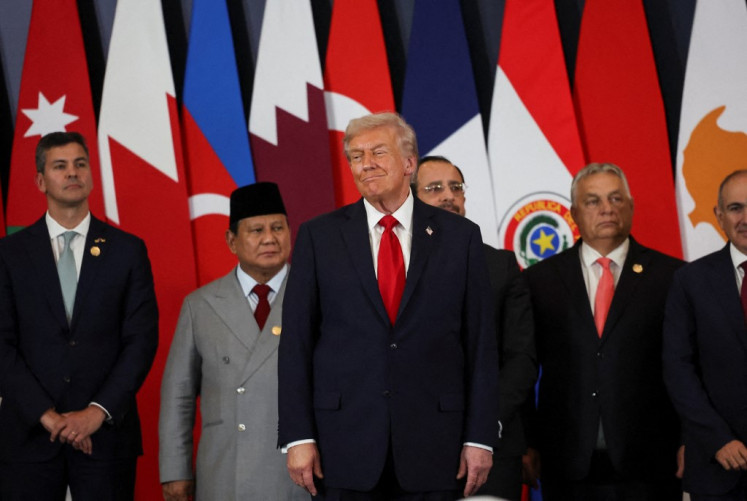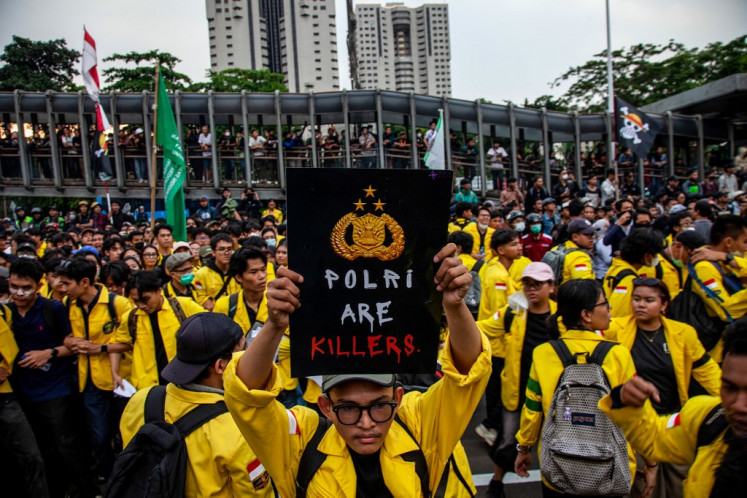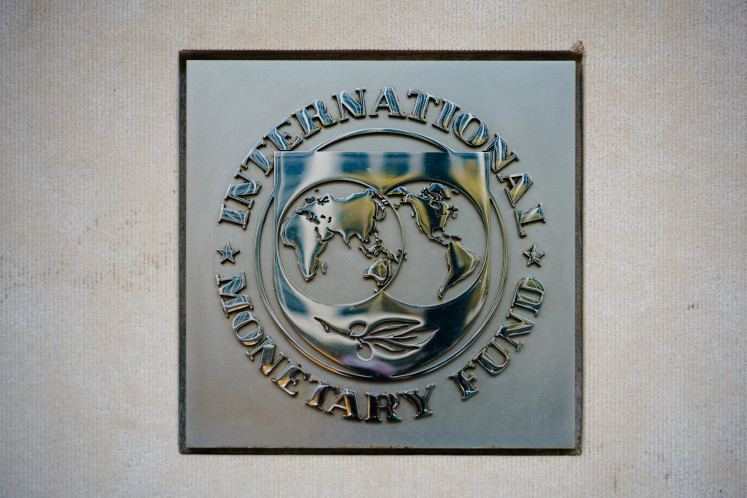Popular Reads
Top Results
Can't find what you're looking for?
View all search resultsPopular Reads
Top Results
Can't find what you're looking for?
View all search resultsNetizens say no to govt’s planned censorship of Netflix, YouTube
Indonesian movie and video buffs are balking at the government’s plan to begin censoring movies and videos that are being streamed by popular sites such as YouTube and Netflix
Change text size
Gift Premium Articles
to Anyone
Indonesian movie and video buffs are balking at the government’s plan to begin censoring movies and videos that are being streamed by popular sites such as YouTube and Netflix.
An online petition through change.org with more than 88,000 signatures was presented on Wednesday to the Indonesian Broadcasting Commission (KPI), the state body that currently monitors all broadcasting content.
Representatives of Change.org Indonesia argue that these video streaming sites already have an internal mechanism to censor what they deem inappropriate, and that the KPI’s authority does not extend to internet content.
The KPI, which has the authority to recommend banning TV and radio programs, announced last week that it intended to begin monitoring the content of video-streaming websites, specifically naming YouTube and Netflix among its targets. It will recommend removing content it finds unsuitable for Indonesian viewers.
KPI chair Agung Suprio defended the censorship plan to protect viewers from being negatively influenced by provocative content.
“We have to make sure digital content is worth watching, promotes educational values and keeps netizens away from low-quality content,” Agung said.
Streaming websites such as Netflix, YouTube Premium, iFlix, Amazon Prime Video and Genflix offer millions of Hollywood, Bollywood and Indonesian movie titles. With low monthly fees, users can access any movie in their archives at any time. YouTube is popular for short video clips containing news, information and entertainment.
There is one catch: None of the content goes through the Indonesian government censorship mechanism that films screened in movie houses or on TV go through.
It is unclear how exactly the KPI intends to censor millions of video clips and movie titles on the internet, but Agung said he was scheduled to meet with representatives of Netflix, YouTube and other video streaming companies on Aug. 21 to discuss the arrangement.
The Communications and Information Ministry has the power to block internet content that is deemed pornographic or containing hate speech, but otherwise it has left the popular video-streaming websites alone.
Films screened by movie houses in Indonesia go through the Film Censorship Board, which sets much more conservative moral standards than in the West in general but is still more liberal than those found in the Middle East.
“Streaming services such as Netflix and YouTube do not fall within the jurisdiction of the KPI. Furthermore, the content on all well-known digital media outlets is already being internally monitored,” Dara Nasution, one of the initiators of the petition change.org/kpijanganurusinnetflix (KPIstayawayfromnetflix) told The Jakarta Post on Wednesday.
Dara said the KPI should instead direct its energy to monitoring the content of TV broadcasting, as some programs have questionable values. “Are religious soap operas educating and nurturing us to become better people? How about talk shows that exploit people’s private lives and sufferings?” she said.
Others signing the petition have also spoken out against the KPI’s plan.
The KPI is not the place to raise complaints about YouTube and Netflix content, Santy Soetrisno writes. “Netflix is subscription-based. If you can’t stand its content, stop subscribing,” Santy said.
Muhammad Zuhdi Putra criticized the KPI’s plan as full of hypocrisy.
“Many shows being aired by national TV stations are neither educational nor informative and offer zero benefits, especially to the young viewers,” he writes. “We pay for Netflix and thus deserve unlimited access to all of the shows.”
The petition also said that Netflix, YouTube, and other platforms had become more popular alternatives because the KPI had been poor in preserving the quality of national television.
Television watchdog Remotivi director Yovantra Arief said the KPI’s intention to widen its broadcasting coverage was problematic because it clashed with the definitions laid down in the Electronic Information and Transactions (ITE) Law.
“The KPI is referring to press-related articles in the ITE Law, which also cover digital content. However, the articles should only be used to monitor digital journalism and not more.
Meanwhile, digital broadcasting does not have characteristics that deem it necessary to be separately regulated,” said Yovantra.
Besides Indonesia, some countries have also attempted to implement censorship or supervision of digital media outlets.
At the end of last year, Netflix and eight other video streaming platforms agreed to sign the Code of Best Practices that was created by the Indian government’s Internet and Mobile Association.
The code stipulates that video streaming companies are required to internally regulate their content so that it does not disrespect the country’s flag, insult religions or promote terrorism.
_______________________
On the other hand, the Saudi government took a more extreme approach when it ordered Netflix to take down an episode of comedian Hasan Minhaj’s Patriot Act show last year, in which he criticized the government’s inconsistent accounts of the murder of journalist Jamal Khashoggi. (bry)
















